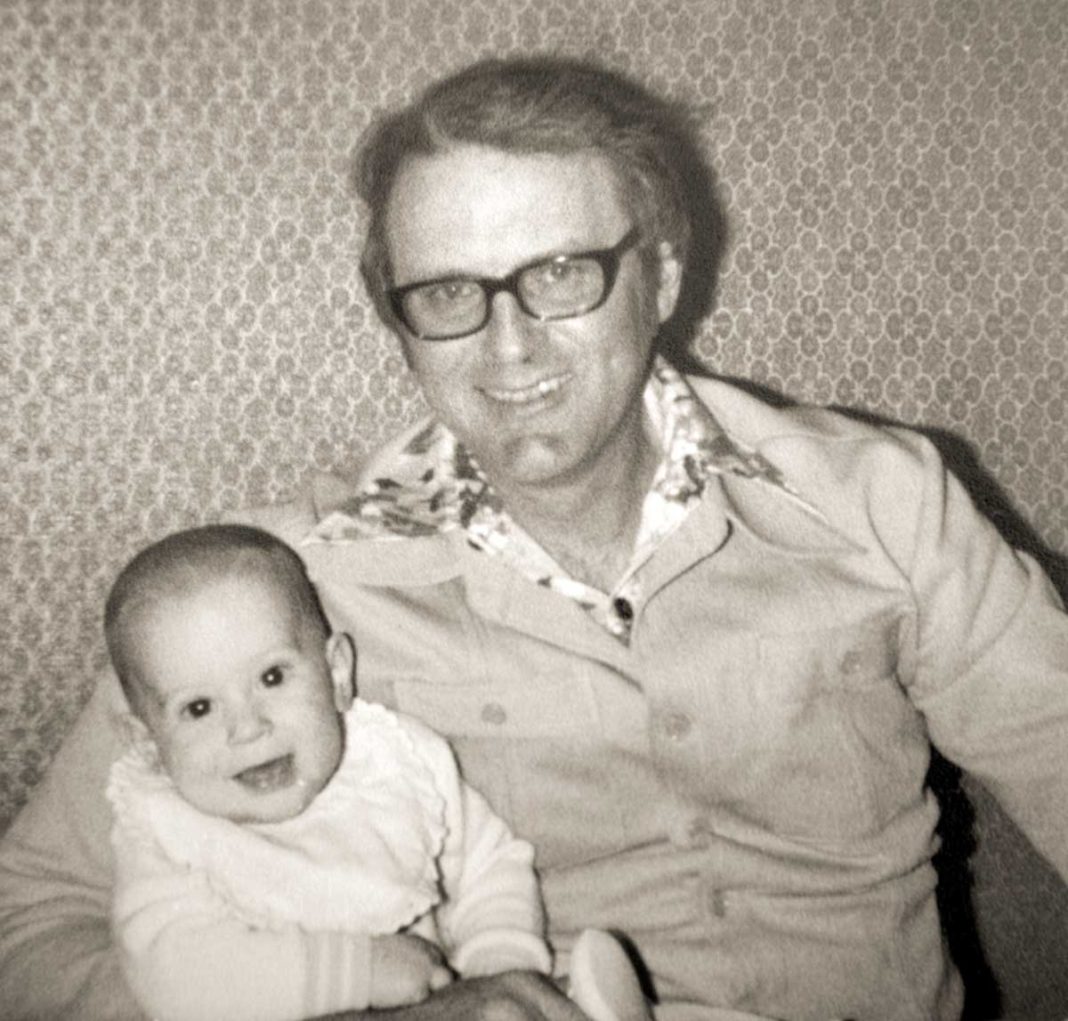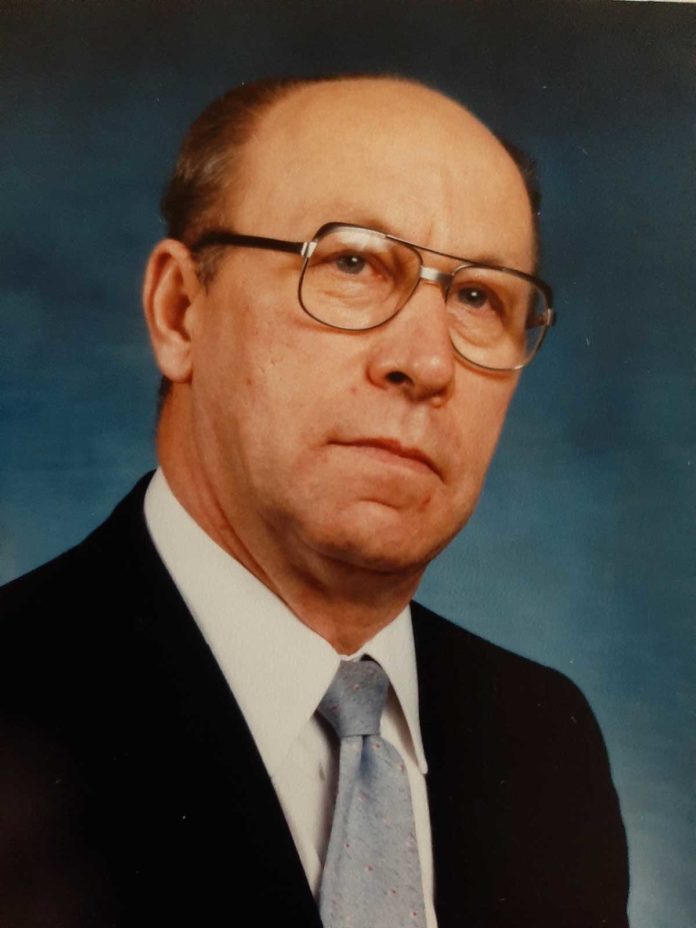Gary Chandler
Gary and Suzanne’s home lies in the heart of Manitowaning, right next to the bay that forms the impressive view from their high, overlooking deck. The serene landscape, naturally enhanced with ducks, geese and other water fowl, presents a calming peace. Gary has spent much of his life serving this Island community, as teacher and principal of Manitoulin Secondary School, where he was well respected. “It was easy to be principal of a school that had excellent students and teachers,” he shared. Back in the day, when he walked into the assembly of about one thousand kids and said, ‘Good morning,’ you could hear a pin drop. Gary was always impressed with both the teachers and the students he was privileged to work with.
“Paternal grandparents, John and Melinda Chandler, boast English and Irish ancestry.” John drove transport trucks and Melinda helped nurse her neighbour, my maternal grandmother, Sarah Jane Grover after she had a stroke and was bed-ridden for seven years. Maternal grandfather Milton ‘Roy’ Grover, of Pennsylvania Dutch lineage, had been both a farmer in Chatham Township and an employee at the Gray Dort Buggy Works in that community. A horse and buggy allowed him to sleep most of the eleven miles to work because his horse knew the route. Roy lived to be 103.
Irvin Chandler, Gary’s father, was born in Ottawa where his grandparents had settled initially, but he spent most of his life in Chatham where he met and married Roberta Margaret Grover. “Dad was a good athlete, pitching for the Industrial Baseball League and being a champion golfer for his club. As a child, he had developed polio in one leg, so he couldn’t join the army. Dad used his bike to get to the International Harvester truck plant where he worked during the day. At night he built boxes to ship grenades.”
Irvin ‘Gary’ was born on August 14, 1940, in Chatham. He would have two brothers, Brian, who recently passed away, and Robert, ‘Bob’ who still lives in Chatham. Brian had managed the successful grain elevators in Kent Bridge, Ontario for W.G. Thompson and Sons. In his youth, brother Bob played on the little league team with Ferguson Jenkins. Bob joined the OPP and retired as an acting deputy commissioner. He still enjoys a good game of golf. Brian’s son Brad is CEO for Hensel Co-op, a farm co-operative with six hundred employees and elevators all over Canada. He spends as much time as possible on Manitoulin.
“I remember it was a long way down from a big horse, as a toddler. I was strapped on, wearing a straw hat, while my parents worked on the farm. In the early 1940s, I remember fighter planes flying overhead during training missions in Chatham. The army barracks were nearby. Two of my uncles went off to war and luckily, both came back, after hostilities ended. One of them had trained for a secret mission that was cancelled because the war ended. I remember the church bells ringing when the war ended.”
Gary attended several schools in Chatham starting at McKeough Public School for Grade 1 and SS #26 for Grade 2. He skipped Grade 3 and went to King George Public School for Grades 4 to 6 and Sprucedale Public School for grades 7 and 8. At home, he worked in the fields of his grandparents’ farm and helped with the market garden. “I used to go door to door to sell vegetables from my wagon. At eight, I added a paper route.”
“In 1948, I first came through Manitoulin with mom and dad and our Grover grandparents in dad’s first car, a 1948 Pontiac. We drove through North Bay and stayed overnight in Sudbury, which resembled a ‘moonscape.’ I was car sick most of the way. We visited Sault Ste. Marie, Sowerby and Espanola before heading through Manitoulin to the ferry at South Baymouth and home. The ferry had been the highlight and we had enjoyed our first taste of Manitoulin.”
“At 16, starting at 6:30 am, I stocked shelves, unloaded delivery trucks and scrubbed floors at the local A & P Supermarket.” When he had free time, he enjoyed a good game of hardball. High school was at the Chatham Collegiate Institute, “I didn’t like French because I had missed many classes due to sports, but Latin and other academic courses were fine. I promised my French teacher, I wouldn’t take it in Grade 13. The Latin teacher encouraged me to teach.”

His superiors appreciated his leadership skills too. Gary had become Lieutenant Colonel in the Army Cadet Corps and later joined the Reserve Army, the Essex Kent Scottish Regiment. In 1956, Gary attended the Central Command cadet summer camp at Ipperwash, where he won the Lieutenant Governor’s medal for the ‘Best Cadet’ in Ontario. The vice-chief of the general staff awarded him the medal. “Only my parents knew.” A year later, Gary became commanding officer of the cadets in Banff at the National Cadet Camp.
Gary was eighteen when he started at Queen’s University in Kingston in 1958. “I was a long way from home and a bit homesick. I had signed up for medicine, a six-year program, but after a year of listening to unhappy senior medicine students, I looked at other opportunities, like agriculture. I moved closer to home, to Western in London and took a BA in psychology. Agriculture and career counselling had not been available at the time.”
“I became president of the student council for Westminister College.” As president, Gary liaised with other programs at Western and helped co-ordinate student sports activities. For three years he also belonged to ‘Circle K,’ a service organization like Kiwanis, where they did some service work and distributed items like books to students.
After graduation, Gary worked for Master Feeds in Chatham. “I finished the last course for my BA in summer school the following year. By then, teaching was a more compelling career choice and teachers’ college was not a pre-requisite at the time. Joe Carpenter, my old principal at Chatham Collegiate Institute, had no openings until September. The Globe and Mail had ads for teachers including one from Walter Stewart, the principal of Little Current High School. I was interviewed in Toronto and was accepted to teach math, science, botany, zoology, business practice and French!”
“I wound up with a 49-period time-table which extended through lunch. There was only one period off in a week. An uncle who was a science teacher in Chatham provided me with some outlines and exams. In my first French class, I asked, ‘Does anyone here speak French?’ When no hand went up, I was immensely relieved. I stayed one step ahead of the students with some help from another French teacher. All lessons were prepared in advance.”
“In 1964, the entire Little Current curriculum was academic. This concerned me, along with the French requisite, when some youth couldn’t write English. For the first issue, I asked town leaders to add a hands-on agricultural course. I rationalized that we lived in a farming area and they agreed. Their connections to MPP Stan Farquhar and Prime Minister Lester Pearson facilitated a change in that direction. Barney Turner knew Premier Bill Davis. All politicians agreed to this initiative. John Farquhar and Barney Turner spearheaded the building of a greenhouse next to the school.”
“I left for six weeks of teachers’ college that summer, and when I returned, the greenhouse was almost finished. I devised a class curriculum, including soil profiles, suitable plants, better growing techniques and other related topics and then taught the agriculture program. To save money, in the fall we all brought cuttings for the greenhouse. Batman’s Hotel in Sheguiandah was my first home. I ate supper with the Batman family. There were four kids including Carol who later became a Sheppard and later yet, my secretary at MSS.”
Gary met Marjorie Rogers in Little Current. They married Christmas 1964 and had three children, Karyn, Meredith and Rob. Meanwhile the agricultural program was extraordinarily successful and word got out. “I was with Walter Stewart at the post office when I opened a letter from the Elmira District Secondary School looking for an agriculture teacher. This would be a promotion. Walter said something under his breath. I decided to go for the interview and got the job.”
Then began a series of placements that focused on this new concept of agricultural teaching at the high school level. Gary spent one year at Elmira before going to Orangeville District Secondary School, ODSS, the top agricultural school at the time. I was seconded as a consultant to the Ministry of Education at Queen’s Park. In 1967-68, they wanted me to devise environmental programming for ETV, Educational Television, TVO today.
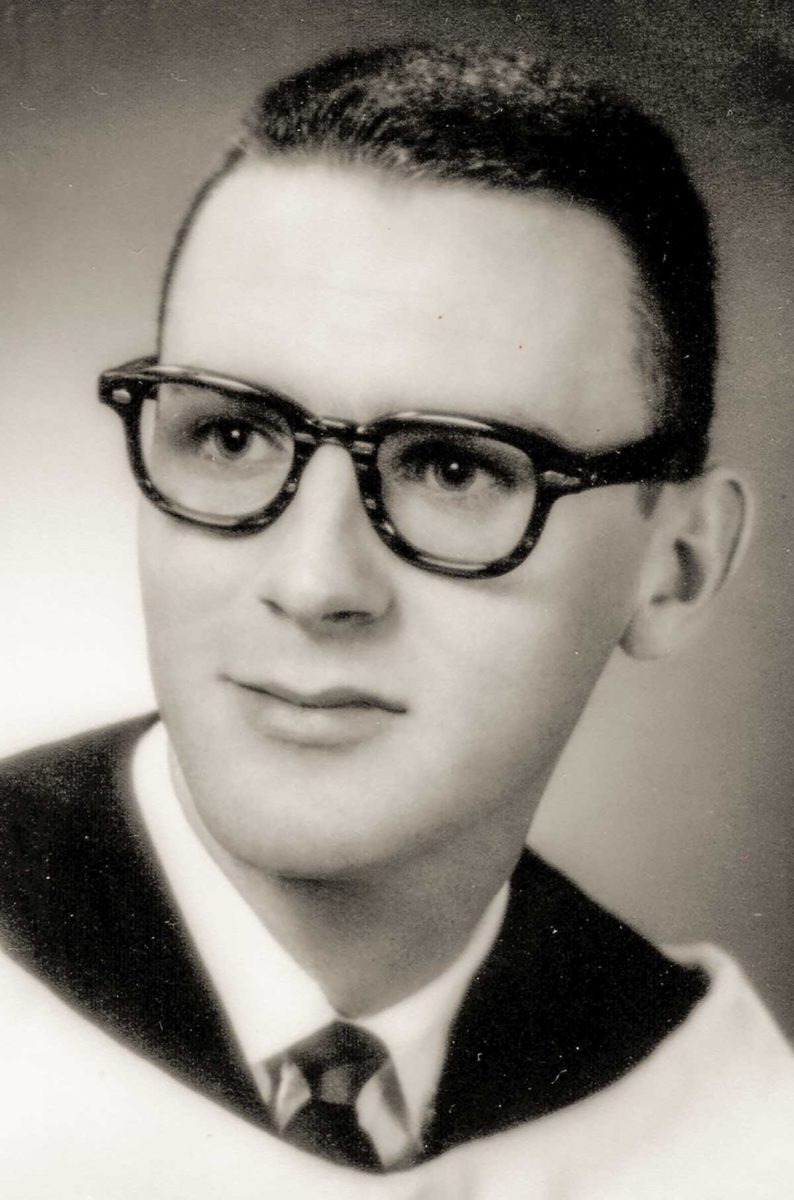
Since this was an innovative program, Gary was asked to share his expertise at professional development days in the school system. “By then we had moved to Toronto. When I visited the ministry’s regional office in Sudbury, I met with Roger Allen, the first educational inspector I ever had. He spotted me right away and shared his plans for MSS. The current three high schools would be shut down and a new principal of Manitoulin Secondary School would be needed.”
Gary was getting tired of living in Toronto. “I was on the ground floor in the Ministry of Education and I could have moved up but I wanted to get back to rural Ontario. I left the Ministry in 1968 and went back to Orangeville to teach for a year until Manitoulin Secondary School opened. While on Manitoulin for a visit, I ran into Jim Bousquet in Little Current. He asked me to come for a ride. We looked at the old Nelson Rowe house near the dump in Little Current. It was well-built but lacked plumbing, water and central heat. I bought the house because it was a two-story house with lots of potential and a splendid view of Strawberry Island. That winter of 1968, while still teaching in Orangeville, an electrical teacher showed me how to wire a house.”
“Meanwhile Roger Allen of the Ministry of Education was negotiating with Island leaders to include the sciences, trades and technology along with the academic courses in the new curriculum, in one school building in West Bay. Indian Affairs would pay for 33 percent of the costs. This agreement was finally made but had not included Anishnabek input.”
In 1969, when MSS opened in West Bay (M’Chigeeng), Gary moved the family back to Little Current and started teaching agriculture and environmental science. That year, his class went to the Royal Agricultural Winter Fair. “We stayed in the gym at the Orangeville High School. Bill Wood’s dad had a school bus and the local minister drove the class to Toronto and back. I was told if I couldn’t find a student in a Toronto store, just approach the nearest elevator or escalator.”
About this time, Bert Dunlop asked him to run for local council. “Nobody knows me,” Gary said. It seems many people knew him because he topped the voting list. He sat on council for Howland Township and later became the reeve. “I decided to drop out of the next election after becoming vice principal of MSS in 1972.”
In 1979, Gary became the principal, a role he enjoyed for 16 years. Gary also gave summer workshops to other agriculture teachers at Western’s Althouse College of Education in Guelph. “I wired the house, added a bathroom and a yard light that could be seen boating out of Killarney.” Soon, he purchased the Morley Gordon farm in Green Bay and added cattle to run on the Little Current farm.
In 1975, Gary and Marjory agreed to divorce. Gary kept the three children. In time, he met Penny Dollar, a music teacher at MSS. She was looking for a letter of recommendation to teach in Germany. Gary was reluctant to lose a good teacher. He said to her, “We are happy with you and want you to stay.” Miss Dollar was aware of Gary’s situation and asked if she could help with the kids. “I said no at first, then reconsidered. ‘We have a piano. You could teach the kids music to get their minds off the changes.’”
After her first day of lessons, the kids asked if Miss Dollar could stay for supper. Gary was not sure about this invitation but the children were adamant and Penny agreed to stay. During supper, little Rob walked over to Penny and asked, “Are you going to marry my dad?” That was a bit awkward, but it led to an eventual marriage that lasted 36 years. They moved to the Green Bay farm.
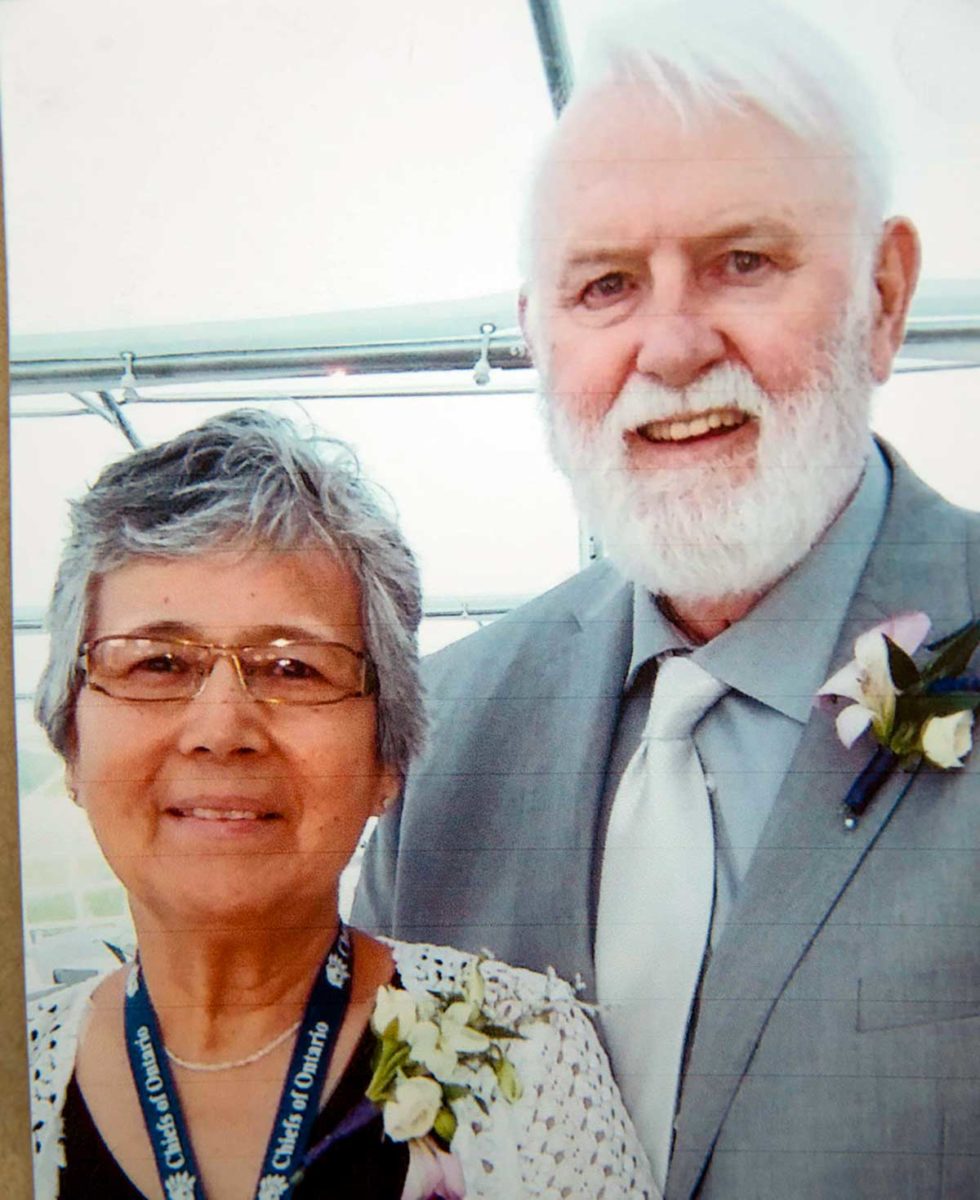
In November 1979, the Chandlers moved to the Ednie farm, near West Bay. The house was only partially finished with insulation in the ceiling and the outside walls. There was one tap, a toilet and a furnace. It took some time for Gary to fill in the missing items. They now owned three farms. Jason, Jordan and Kyle were added to the family.
In the early 1980s, Marion Seabrook took forty kids from her native studies class to Haida Guaii in the Queen Charlotte Islands. Gary went as a chaperone. “I remember the huge fir trees that took thirteen kids holding hands to span the circumference. Students boarded with local families, whose children would later visit Manitoulin.” In January 1996, Gary retired from MSS and began to enjoy retirement. After the kids moved out, Penny and Gary were empty nesters but soon tragedy struck. After 30 years of marriage, in 2011 Penny was diagnosed with cancer. She died within six months. Her faith kept her strong and she planned her own funeral service from her hospital bed.
Gary started to eat his meals at Basil and Janis Panamick’s restaurant. One day while Gary was eating supper in this restaurant, he spotted Suzanne Knapp all alone at another table. He remembered meeting her at school and said ‘hello.’ She came over to sit with him. A week later, Gary invited her to eat at Green Acres. On October 15, 2014, Suzanne and Gary ‘tied the knot’ at the Missionary Church in Mindemoya. “We stayed at the new hotel in Little Current for a night and then came home to the big white five-bedroom house. This house was just too big, so in 2018, we moved into Suzanne’s cozier home in Manitowaning.”
In November 2020, the couple moved into their current home, the one that Jordan had found, and Jordan moved into the big house. Gary farmed until he was in his late 60’s. After that, he helped Glen Corbiere who had bought part of Gary’s farm. “I retired again when the John Deere tractors just got too high.”
Today, Karen lives in Gore Bay and she works in sales at UCCM’s Castle Building. She has two sons, Chandler and Kegan, and a daughter Kaelin (Kiwi), who gave Gary great-granddaughter Mckenna. Meredith is in Kagawong. She has Miranda and Harrison and teaches organizational safety. Rob is a contractor in Tennessee. He has Cole, and twins Brooke and Aiden. Jordan is a broker with ReMax Real Estate, and lives with his wife Tracy and his infant son, Noland Irvin Kenneth, in the big white house on the hill. Jason, who lives near Ten Mile Point, is engaged and works as a contractor too. Kyle is on the tactical team for the Greater Sudbury Police Service. He is also engaged to be married.
Most important event in my life? “Having my kids.” Favourite pet? “Goldie. She’s fourteen and a great dog.” Favourite season? “Spring, when life begins again, and things grow.” Favourite movies? “Old movies” Any collections? “Stamps while I was with the Boy Scouts.” My first hourly wage? “Sixty-five cents an hour at the A & P store.” My strengths? “From the feedback, I believe, leadership, organizational skills and empathy.” Associations I was involved with? “The Gore Bay Rotary Club years ago. The Secondary School Teacher’s Federation. I was elected president of the local Federation.”“
Someone I admired? “My kind, hard-working dad.”
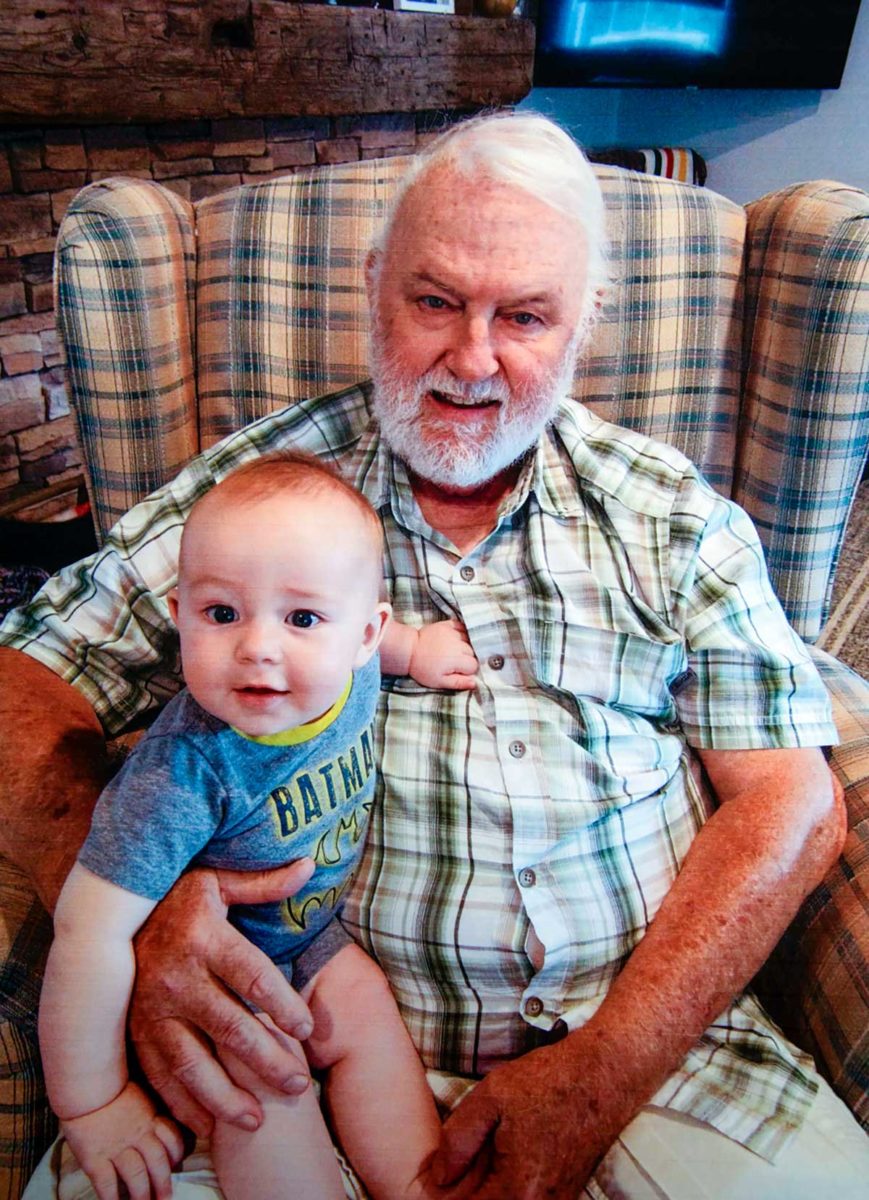
The youngest and eldest member of the family. 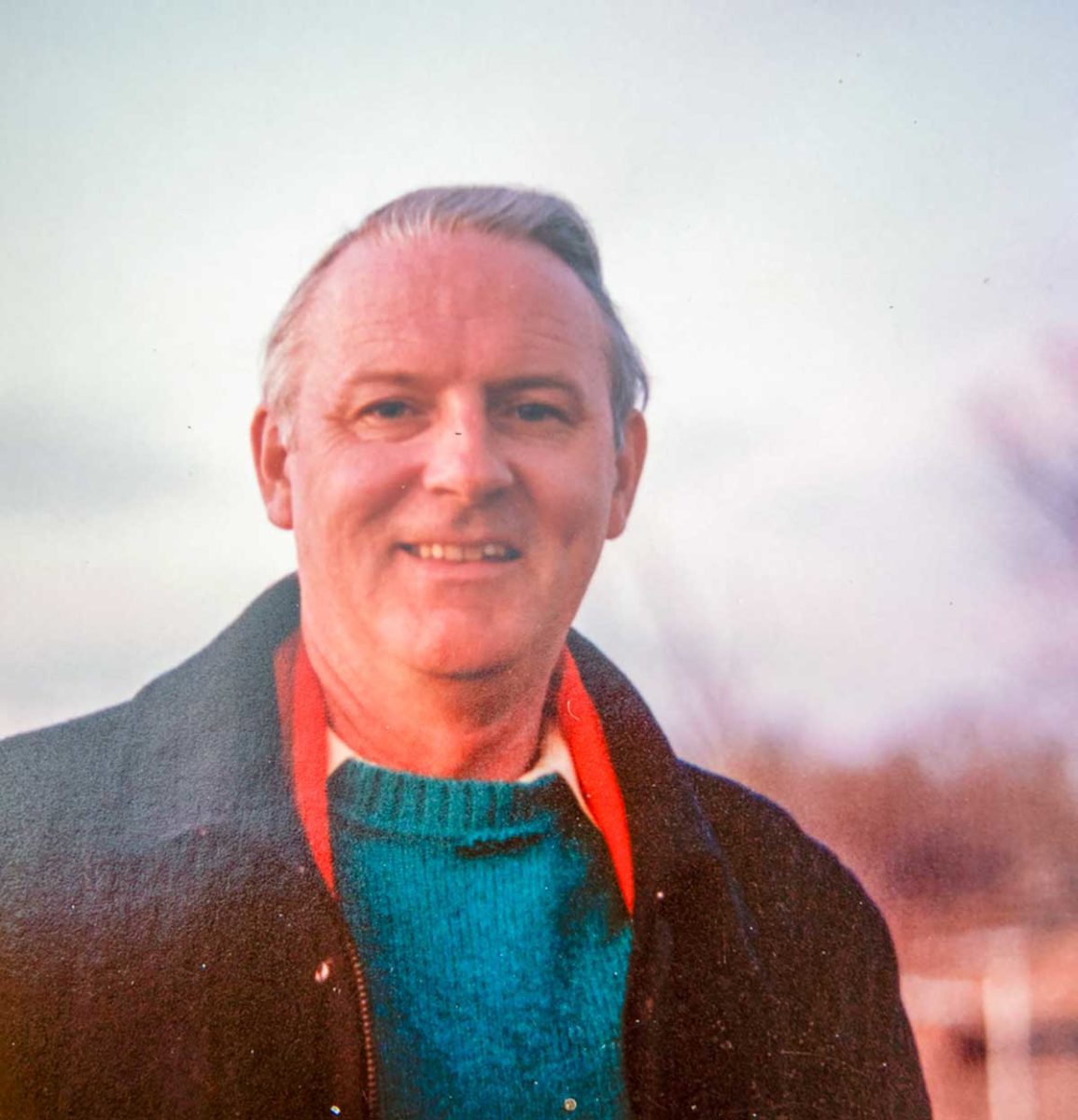
The high school years. 
Meredith and Rob early 1970s at the farm 
Goldy 
Gary’s parents with Gary at top, Brian and Bob. 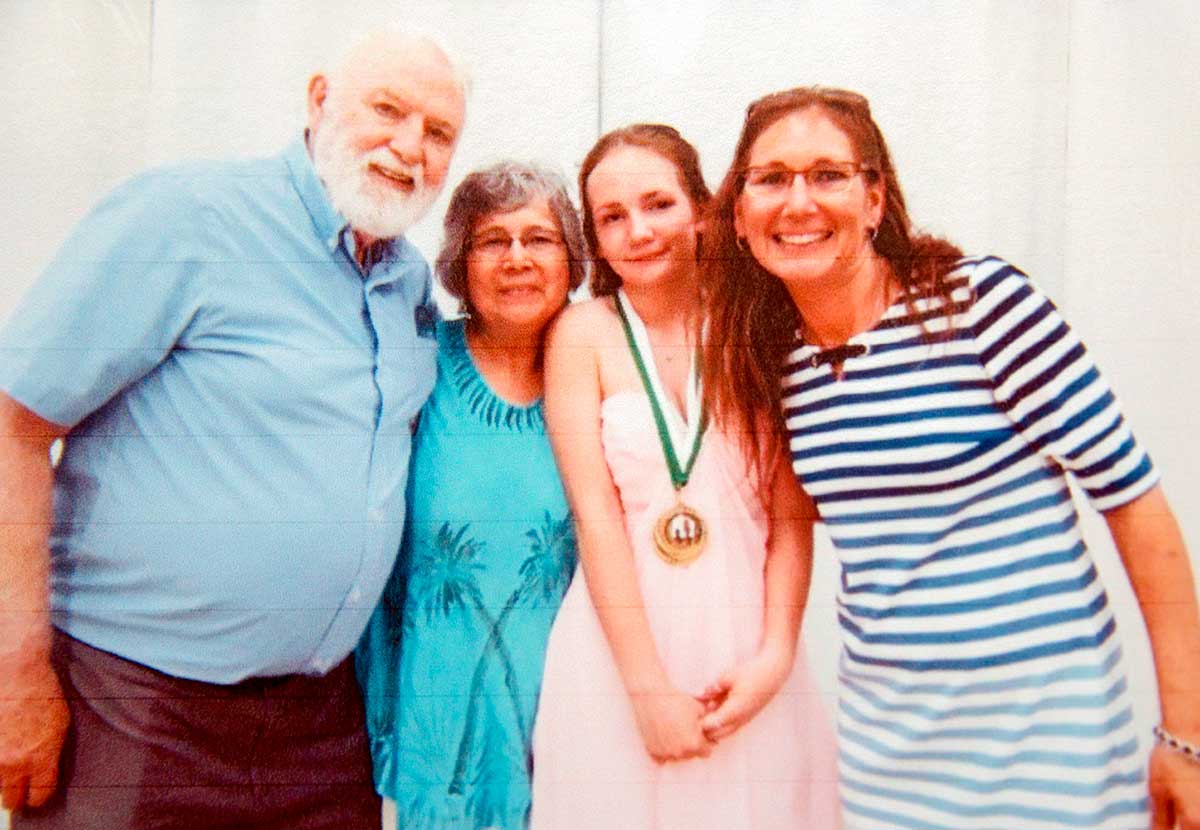
Gary with Suzanne and her daughter Olivia and granddaughter Amanda at her graduation from grade eight at Assiginack, 2018. 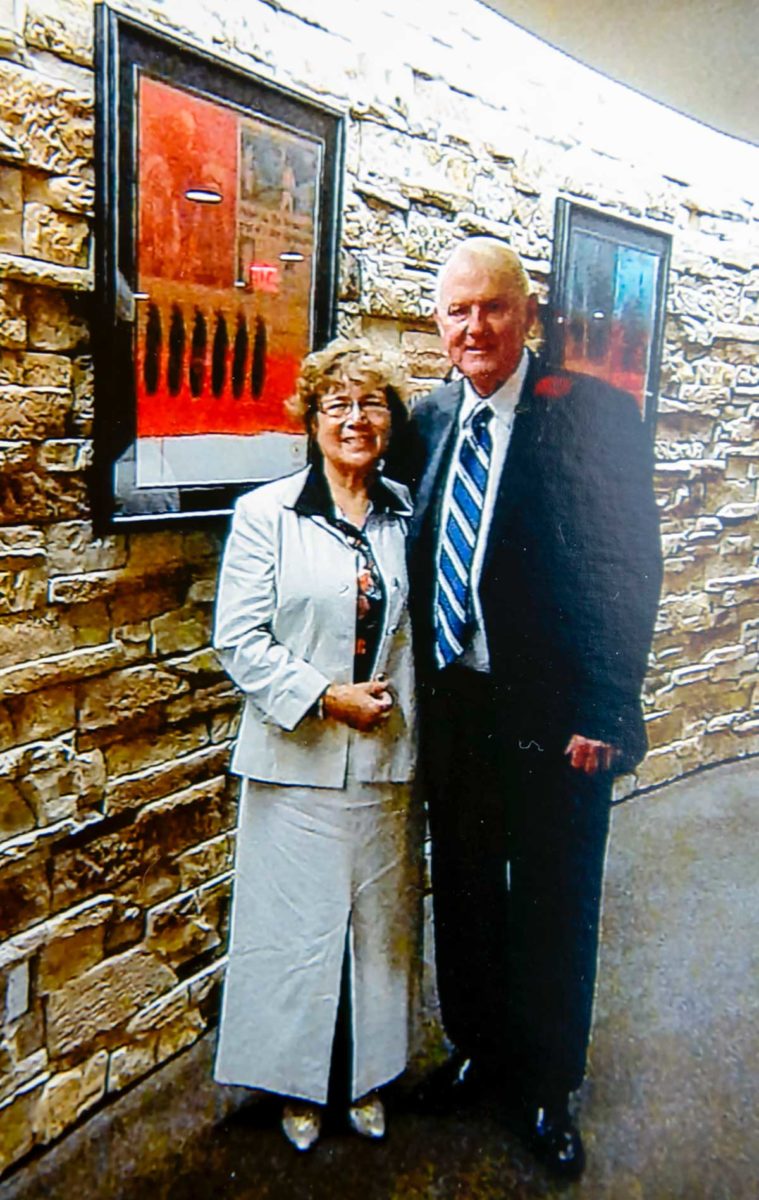
Gary and Suzanne 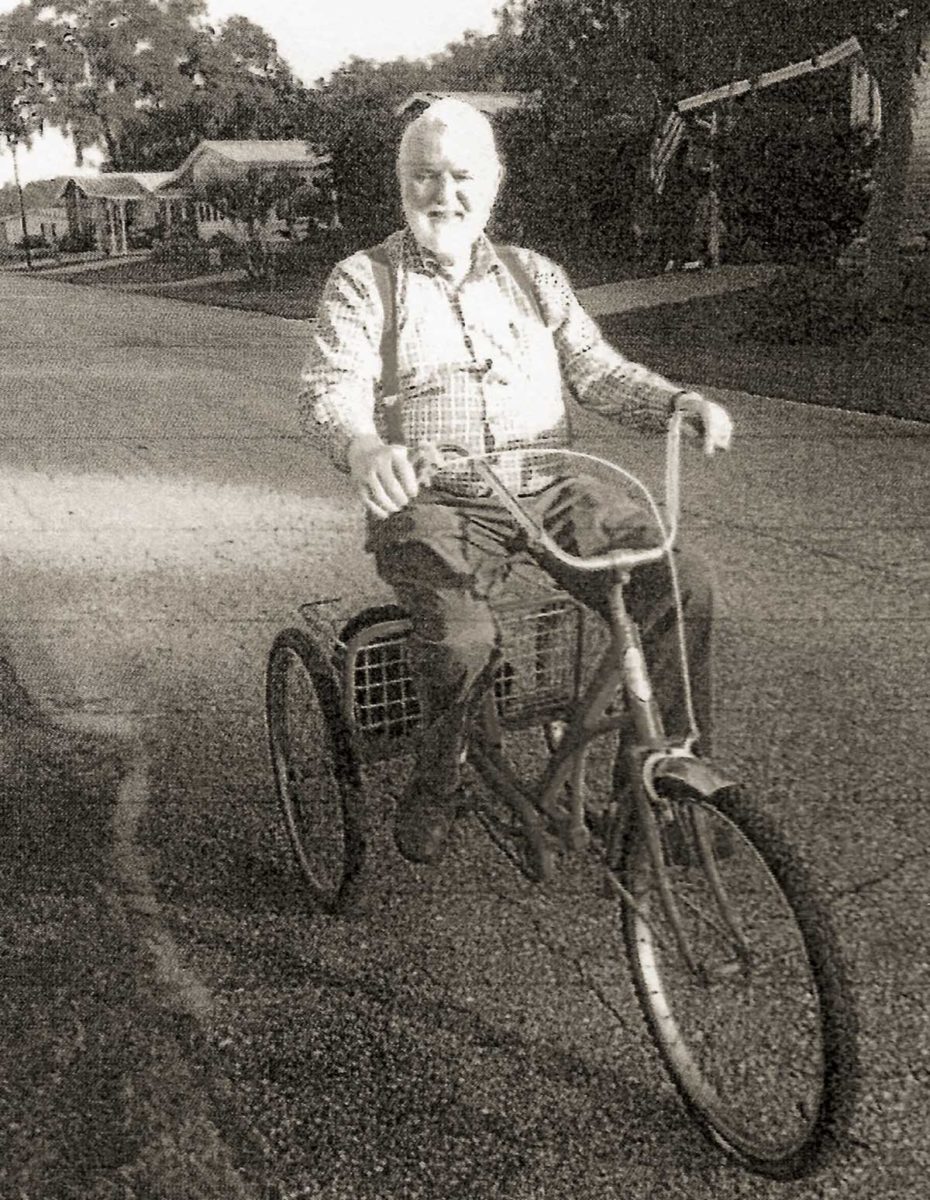
Alternate transportation
If you could go back and do something differently, would you? “No.” If you could only have three things in your life, what would they be? “My wife, my kids and my home, plus a few tools.” Legacy for the future? “The love for my children and grandchildren and their children.” Recipe for happiness? “Be guided by Christian principles and have a positive outlook.” Advice to the young? “Avoid drugs that have destroyed so many productive young lives. Kyle runs into this every day on the police force.”
Gary has some health issues, but he is happy sharing his life with Suzanne in their new home. The couple also enjoys their cottage on South Bay, six kilometers from their home. “Not sure if I will live to 103 like my grandfather, but I still like to build things at the cottage. We can use another water tower and all our energy comes from solar now. Suzanne has had a big impact on my life, making my life more fulfilling. She is a diligent worker and an inspiration to many.”
“Manitoulin has always been important to me. The fact that I came here, lived here, left and came back says it all. I like the people, the students and the camaraderie I share with so many Islanders. Norm Morrell was always a good friend. We worked together at MSS. At one time we could identify anyone on the Island; back then, I knew what Island community they all hailed from but that is harder now. When I drive around in Toronto, see all the big buildings, all the people and so many lights, I think, ‘I don’t have to do this anymore.’ Instead, I now enjoy the scenery, and the quiet peace of this beautiful place.”

